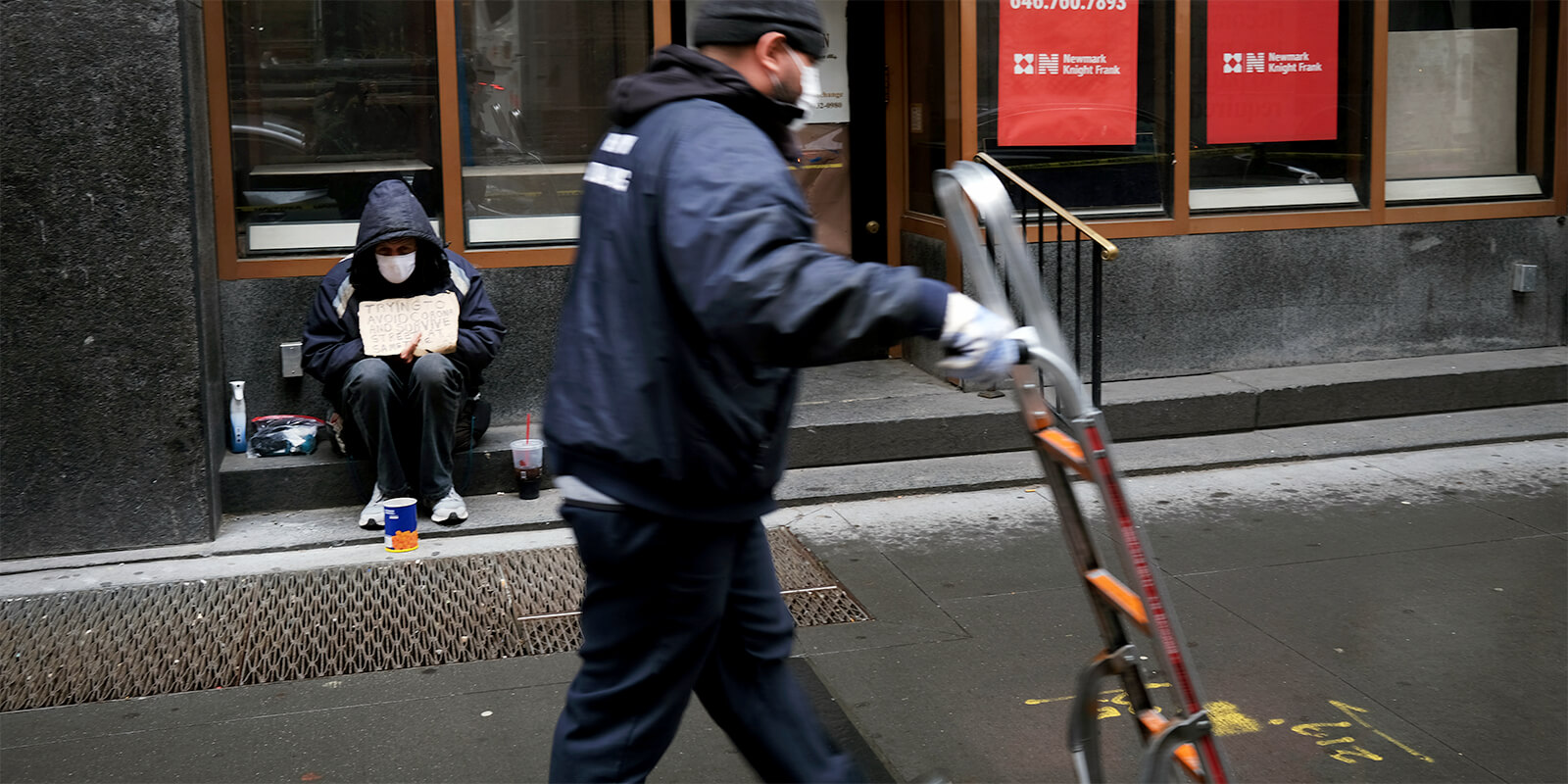Congress simply cannot abandon financially struggling state and local governments in light of today’s staggering unemployment numbers. The federal government is the only source of help for states and localities, which are pummeled by revenue losses as businesses close, workers get furloughed or laid off, and the economy reels in response to the coronavirus pandemic.
Without federal aid, states and localities would be forced to slash public services and let go of the legions of workers who provide them. That means millions more workers will join the record 20.5 million people – including 980,000 state and local workers – who just lost their jobs in April.
“The coronavirus pandemic has triggered the most devastating economic crisis of our lifetimes. The nation hemorrhaged 980,000 public service jobs last month a staggering and unprecedented figure, more than were lost in the entire Great Recession – and this could be just the beginning,” AFSCME President Lee Saunders said in a statement. “State and local aid may be the difference between a recession and a depression, and there’s only one way to reverse course and kickstart a recovery: Congress must fund the front lines.”
Nearly every state and most local governments have balanced budget requirements. So they must either raise taxes or cut spending on public services to make up for budget shortfalls.
During past economic downturns – especially during the Great Recession a decade ago – states and localities imposed deep budget cuts. Workers saw layoffs and furloughs, as well as freezes or cuts in wages, pensions and health care. Cuts in services left communities badly unprepared for the COVID-19 pandemic.
Now, it’s happening again. Mass layoffs of state and municipal workers have begun all over the country, and the problem is poised to get much worse without urgent federal help.
State budgets could be as much as $650 billion in the hole over the next three years due to the pandemic, according to a new analysis of federal and private data. The nation’s counties are bracing for revenue losses totaling $114 billion through fiscal year 2021, while having to spend an additional $30 billion on public services such as health care, criminal justice and education, according to the National Association of Counties.
There have been bipartisan appeals for state and local aid. Groups like the National Governors Association and the National League of Cities — which predicted that up to 1 million public sector workers might lose their jobs — have each sought at least $500 billion from Congress. Civil rights leaders and religious groups have also written to Congress seeking state and local aid, pointing out that African American communities have been especially hit hard by the COVID-19 pandemic.
President Donald Trump and his Republican allies on Capitol Hill quickly passed more than $2 trillion in coronavirus assistance that included generous help for businesses and banks — but they are balking when it comes to providing state and local aid. Senate Majority Leader Mitch McConnell (R-Ky.) has even gone so far as to suggest states should simply declare bankruptcy.
All this, despite widespread support for state and local assistance. Helping the stock market is not the same as helping the economy. Laying off public service workers will ensure that our economy — already headed for a recession — sinks deeper into a depression.
AFSCME has launched an aggressive “Fund the Front Lines” campaign and is demanding that Congress spend whatever it takes to prop up states and localities so they can rebuild public services at a time Americans need them the most. AFSCME members have reiterated this demand over and over. Prominent pro-worker congressional leaders, including House Speaker Nancy Pelosi, Senate Majority Leader Chuck Schumer, and Ohio Sen. Sherrod Brown, have echoed that call.
States and municipalities are struggling to afford to retain health care workers, corrections officers, sanitation workers, school custodians, public health nurses and millions of others who provide public services every day. These workers are essential to fighting this pandemic, reopening our economy and continuing to provide the services that make our communities function.
“State and local aid is not an abstraction. It means the schools are strong. It means the trash gets picked up. It means the streets and roads get fixed. It means clean water comes out of the tap. It means, when you call 911, the ambulance shows up in time,” Saunders said. “We cannot beat this pandemic and reopen our economy if these front-line workers are thanked with pink slips.”
(Contributing: Raju Chebium, Marc Granowitter)
